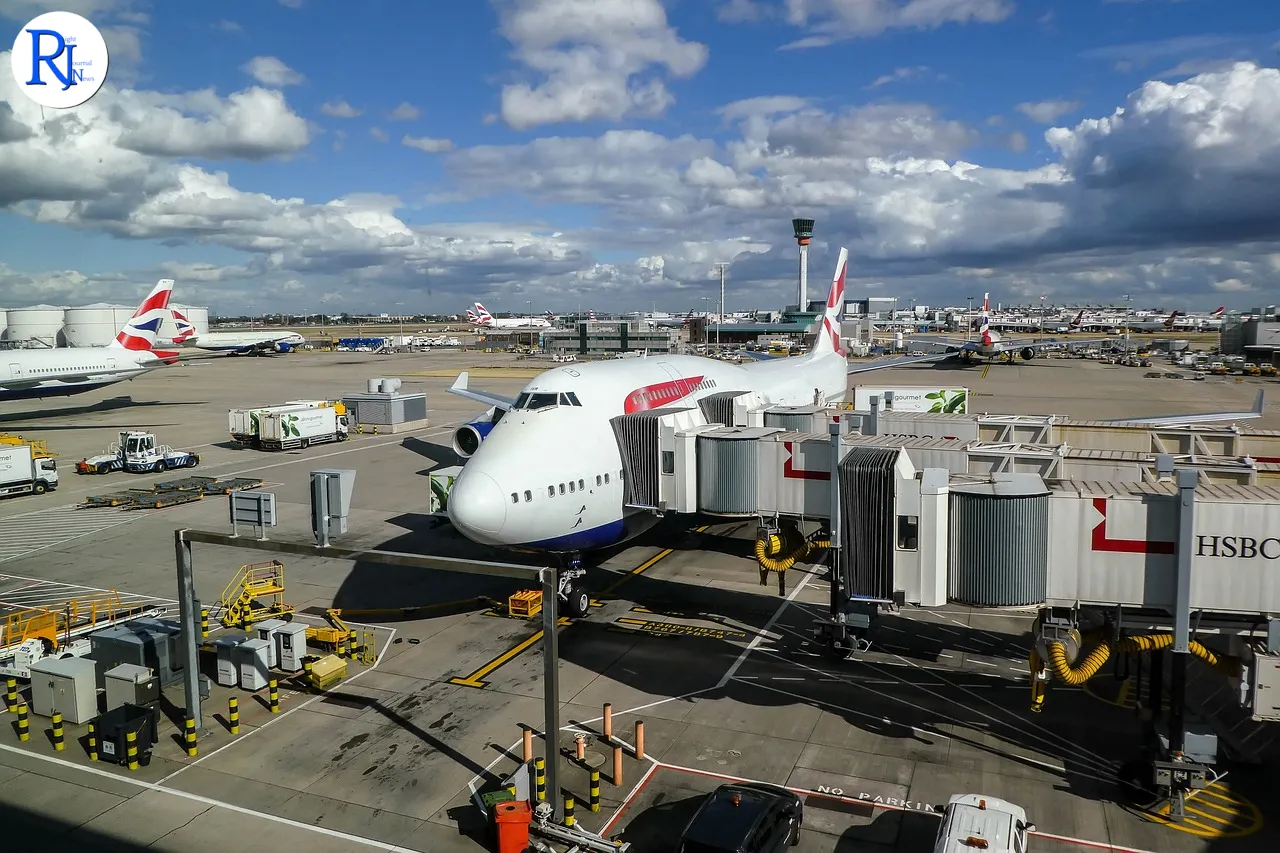The UK is grappling with a double whammy of economic challenges as government borrowing surges and a significant power outage disrupts Heathrow Airport operations. February saw the UK government borrowing £10.7 billion, overshooting forecasts by £4.1 billion. Meanwhile, a fire at a nearby electrical substation forced Heathrow, one of the world’s busiest airports, to close for an entire day, causing airline shares to plummet.
Government Borrowing Exceeds Expectations
In February 2025, the UK government reported borrowing £10.7 billion, significantly higher than the £6.6 billion forecasted by economic analysts. This unexpected increase in the deficit is raising eyebrows among financial experts and policymakers alike. The overshoot is attributed to higher-than-expected spending and lower tax receipts, exacerbated by the ongoing economic uncertainties.
Chancellor of the Exchequer, Rishi Sunak, expressed concerns about the widening deficit. “While we are committed to supporting economic growth, it is crucial to manage public finances responsibly,” he stated. This surge in borrowing comes as the UK navigates post-Brexit economic adjustments and global market fluctuations.

Impact of Heathrow Closure on Aviation Sector
Adding to the economic strain, Heathrow Airport faced an unprecedented shutdown due to a power outage caused by a fire at a nearby electrical substation. The closure not only disrupted travel plans for thousands but also sent airline shares tumbling. British Airways and Virgin Atlantic experienced notable share price drops, reflecting investor anxiety over the operational and financial impacts.
Aviation analyst Alex Roberts noted, “The closure of Heathrow is a stark reminder of the vulnerabilities in our infrastructure. The financial repercussions could extend beyond immediate losses, affecting future investments.” The incident has prompted calls for increased investment in infrastructure resilience to prevent similar disruptions.
Broader Economic Implications of the Trade War
As the UK grapples with domestic challenges, a looming trade war between the US and the EU poses additional threats. A new report by the Economic and Social Research Institute, co-authored by Ireland’s Department of Finance, warns that such a trade conflict could cost Ireland over €18 billion in lost trade and shrink its economy by 3.7% over the next five to seven years.
The report examines the potential impact of a 25% tariff on all EU exports, a scenario that could trigger retaliatory measures from the EU. The implications for the UK and Ireland are significant, given their economic interdependence. The report also highlights the risk of multinational companies relocating to the US, drawn by protectionist policies, which could further strain public finances.
Government Response and Future Outlook
In response to these challenges, the UK government is exploring measures to mitigate economic risks. Discussions are underway to enhance infrastructure resilience and support affected industries, particularly the aviation sector. Additionally, the government aims to engage in diplomatic efforts to avert a full-blown trade war, recognising its potential impact on the broader economy.
Economic strategist Emma Thompson emphasised the importance of proactive measures. “The government must balance immediate support with long-term strategies to ensure economic stability. This involves not only addressing the deficit but also preparing for external shocks,” she said.
Summary and Forward-Looking Insights
The dual challenges of rising government borrowing and the Heathrow disruption underscore the need for robust economic strategies. As the UK navigates these hurdles, maintaining fiscal discipline while investing in infrastructure resilience will be crucial. Furthermore, the potential trade war between the US and the EU serves as a reminder of the interconnectedness of global economies and the necessity for diplomatic engagement.
Looking ahead, the UK must focus on fostering economic resilience and adaptability. By addressing immediate challenges and preparing for future uncertainties, the nation can aim to achieve sustainable growth and stability in an increasingly complex global landscape.

